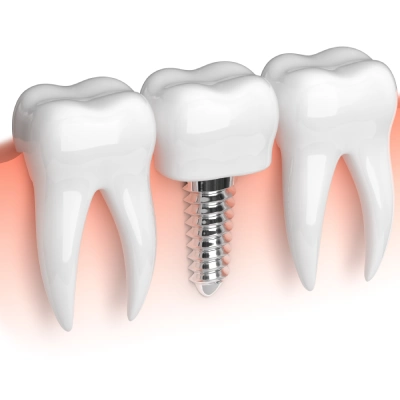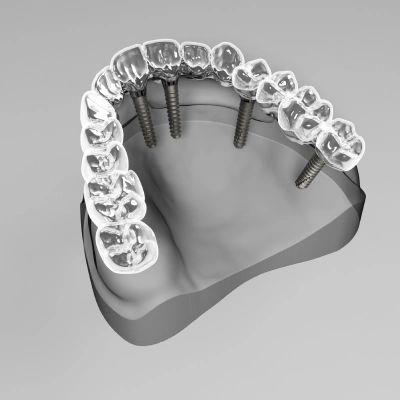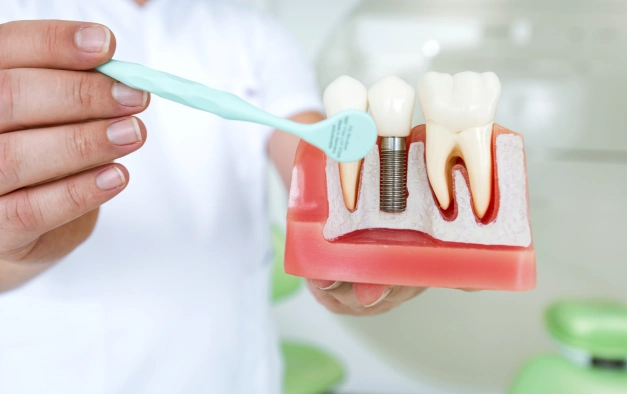If you’re considering dental implants, it’s crucial to understand that, while they can be a fantastic solution for many, they’re not suitable for everyone. Dental implants are a remarkable advancement in modern dentistry, providing a long-term solution for missing teeth that closely mimic natural teeth. However, certain factors can make individuals unsuitable candidates for this procedure. explore who should avoid dental implants and why.
Age Groups That Should Not Get Dental Implants
Age can play a significant role in determining whether dental implants are a suitable option. Children and young adolescents whose jaws are still developing are generally not good candidates for implants. The growth and development of their jawbones may not provide the necessary stability for the implants to integrate successfully. Additionally, older individuals may face challenges with bone density and healing, making the procedure riskier for them.
Do Not Get Dental Implants If You Have These Lifestyle Habits
Beyond age, certain lifestyle habits can also impact the success of dental implants.
You Disregard Dental Health
If you have a history of neglecting your dental hygiene or avoiding regular dental check-ups, dental implants might not be the best choice for you. Good oral health habits are crucial for the success of dental implants, as gum disease and other oral health issues can compromise the integrity of the implants.
Smoking
Smoking is a significant risk factor when it comes to dental implants. It can impair blood flow to the gums and bone tissue, slowing down the healing process and increasing the likelihood of implant failure. Smokers are generally advised to quit smoking before undergoing implant surgery to improve their chances of success.
Other Reasons to Not Get Dental Implants
Aside from age and lifestyle habits, several other factors may make individuals unsuitable candidates for dental implants.

Health Conditions
Certain systemic health conditions, such as uncontrolled diabetes, autoimmune disorders, and bleeding disorders, can affect the body’s ability to heal properly after implant surgery. Individuals with these conditions may face an increased risk of complications and implant failure.
Jaw Bone Structure
The success of dental implants relies heavily on the quality and quantity of the jawbone. Insufficient bone density or inadequate bone volume in the jaw can make it challenging to place implants securely. In such cases, bone grafting procedures may be necessary to augment the jawbone before implant placement.
Risks and Complications with Dental Implants
While dental implants have a high success rate, like any surgical procedure, they carry risks and potential complications.
Infection:
Infection at the implant site can occur if proper oral hygiene is not maintained after surgery. One of the primary risks associated with dental implant surgery is the possibility of infection at the implant site. Despite rigorous sterilization protocols and preventive measures, bacteria can still enter the surgical site during or after the procedure. Infections can manifest as swelling, pain, redness, or discharge around the implant area. Prompt treatment with antibiotics is crucial to managing infections and preventing complications.
Nerve Damage:
In rare cases, dental implant surgery can damage nearby nerves, leading to numbness or tingling in the mouth, lips, or chin. During implant surgery, there is a risk of damaging nearby nerves in the jaw or surrounding tissues. Nerve damage can lead to numbness, tingling, or altered sensation in the mouth, lips, tongue, or chin. While nerve damage is relatively rare, it can occur due to surgical trauma or improper placement of the implant. Careful planning, precise surgical techniques, and thorough patient evaluation can help minimize the risk of nerve injury.
Implant Failure:
Factors such as poor bone quality, inadequate healing, or mechanical issues can contribute to implant failure, requiring the removal and replacement of the implant.
- Insufficient bone density or volume in the jaw can compromise the stability and integration of the implant.
- Proper osseo integration, the process by which the implant fuses with the surrounding bone, is essential for long-term success. Factors such as compromised blood supply, smoking, or certain medications can impede the healing process.
- Problems such as implant fractures, loosening of components, or prosthetic complications can lead to implant failure over time.
When implant failure occurs, the implant may need to be removed, and additional procedures, such as bone grafting or implant replacement, may be necessary to address the underlying issues.
Who Is Suitable for Dental Implants?
Despite the potential limitations and risks, many individuals can greatly benefit from dental implants.
Good Candidates Include:
- Individuals with good overall health and adequate bone density
- Non-smokers or those willing to quit smoking before undergoing surgery
- Patients committed to maintaining excellent oral hygiene
- Those with realistic expectations about the outcome of the procedure

Alternatives to Dental Implants.
For individuals who are not suitable candidates for dental implants, there are alternative options available to restore missing teeth.
Dentures:
Dentures are removable prosthetic devices designed to replace multiple missing teeth or entire dental arches. They consist of artificial teeth set in a pink acrylic base that mimics the appearance of the gums. Dentures can be either full (replacing all teeth in the upper or lower jaw) or partial (replacing multiple missing teeth while preserving the remaining natural teeth). While traditional dentures rely on suction or adhesive to stay in place, implant-supported dentures offer a more secure and stable alternative by attaching to dental implants surgically placed in the jawbone.
Dental Bridges:
Dental bridges are fixed prosthetic devices used to replace one or more missing teeth by anchoring artificial teeth (pontics) to adjacent natural teeth or dental implants. Traditional bridges consist of crowns placed on the adjacent teeth, with the pontic bridging the gap between them. Cantilever bridges are another option for replacing missing teeth when only one adjacent tooth is available for support. While dental bridges offer a non-removable and aesthetically pleasing solution, they may require the preparation and reshaping of adjacent teeth, which can compromise their structural integrity over time.
Conclusion
Looking for expert insights on dental health and treatment options? Explore our latest blog post on “Who Should Avoid Dental Implants” for valuable information and guidance. In this comprehensive article, we delve into the factors that may influence candidacy for dental implants, including age, lifestyle habits, and underlying health conditions. Ready to enhance your smile and oral health? Visit gargdmd to schedule a consultation with Dr. Garg, a trusted and experienced dentist specializing in dental implants and comprehensive dental care. Take the first step towards a healthier, more confident smile today!

